
Dr. Nguyen Xuan Thanh, senior lecturer at Fulbright School of Public Policy and Management - Photo: HL
Private economic development is facing many barriers.
Dr. Nguyen Xuan Thanh, senior lecturer at the Fulbright School of Public Policy and Management, said the above at the seminar "Removing institutional bottlenecks - Unleashing private resources", organized by the Vietnam Television Center in Ho Chi Minh City on May 27.
According to Mr. Thanh, international experience shows that all economies that maintain sustainable growth have one thing in common: the domestic private economic sector develops strongly and plays a central role.
Currently, the “bottleneck” lies in implementation. Issuing policies is not enough, but what is important is whether the policies create a fair and effective mechanism for businesses to access resources.
According to experts, although policies for private economic development have been issued simultaneously and quickly, their implementation in practice still faces many obstacles.
Current bottlenecks include: Complicated and lengthy administrative procedures, wasting time and money for businesses. In addition, there are difficulties in accessing land and credit, especially at the local level.
Policies are also inconsistent in application, leading to different understandings and applications of the law by each agency. The sandbox is new and lacks specific implementation guidelines, making it difficult for innovative startups to access.
Compliance costs are too high

Mr. Nguyen Ba Diep - co-founder of MoMo Financial Technology Group - Photo: HL
Mr. Tu Tien Phat, General Director of ACB , said that when contacted, many business owners said they were ready to promote business in Vietnam, but they needed to see themselves in the policies and institutions of the State.
They are also concerned about costs, from business establishment to loans, procedures, digitizing processes and moving towards green transformation…
Meanwhile, Mr. Nguyen Ba Diep - co-founder of MoMo Financial Technology Group - said that the current compliance costs are too high, with a medium-sized enterprise having to have a legal department of up to 5 people, if the average salary is 20 million VND/person, then each month the enterprise loses 100 million VND just for compliance costs. For large enterprises and corporations, the costs are even more terrible.
Ms. Nguyen Thanh Huong - Investment Director of Nam Long Group - frankly admitted that over the past 3-4 years, the suspension of many real estate projects has prevented foreign investors from pouring capital into Vietnam as expected.
“We hope that the policy will be concretized soon. When resources are released, participating in large projects such as transport-oriented urban development (TOD) will become more feasible. Nam Long and its partners are ready to participate if the implementation mechanism is transparent and timely,” Ms. Huong emphasized.
Institutional reform must be two-way.

Mr. Tran Thanh Trong, General Director of Sang Ban Mai Joint Stock Company, Vice President of Binh Duong Provincial Business Federation - Photo: HL
Mr. Nguyen Dinh Tung, General Director of T&T Vina Company, clearly stated the current situation that enterprises in the agricultural sector are facing, which is "if they cannot manage, they must ban", causing many initiatives and investment needs to be limited.
From another perspective, Mr. Tran Thanh Trong - General Director of Sang Ban Mai Joint Stock Company, Vice President of Binh Duong Province Business Federation - emphasized that the biggest problem today is not only regulations, but also the fear of responsibility of enforcement officers.
Mr. Trong said that during his participation in the Enterprise Supervisory Council, he noticed that many local officials did not dare to make decisions because they were afraid of making mistakes. “The term is almost over but the case has not been resolved. If the spirit of Resolution 68 is truly applied to each official and each department, the processing time will be greatly shortened,” he said.
He also specifically emphasized task number 8 in resolution 68 - on building a culture for the business community. “Businesses themselves must also change, comply with the law, be transparent and together create a responsible business ecosystem. Institutional reform is a two-way street - both the State and businesses must act,” Mr. Trong emphasized.
Source: https://tuoitre.vn/phat-trien-kinh-te-tu-nhan-con-nhieu-rao-can-chi-phi-tuan-thu-dang-qua-lon-20250527193728623.htm





![[Photo] Hungarian President begins official visit to Vietnam](https://vphoto.vietnam.vn/thumb/1200x675/vietnam/resource/IMAGE/2025/5/27/ab75a654c6934572a4f1a566ac63ce82)

![[Photo] Vice President Vo Thi Anh Xuan, French President Emmanuel Macron and his wife visit Hanoi University of Science and Technology](https://vphoto.vietnam.vn/thumb/1200x675/vietnam/resource/IMAGE/2025/5/27/267b6f2bdf3e46439f081b49f6ec26b1)





































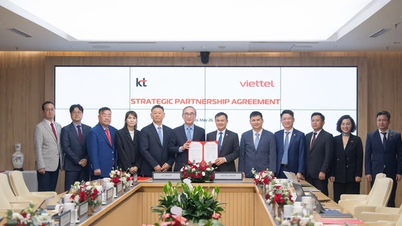
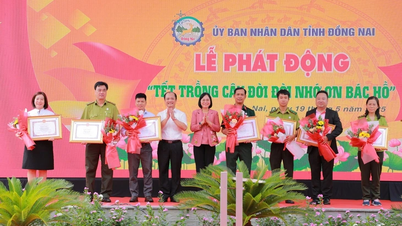






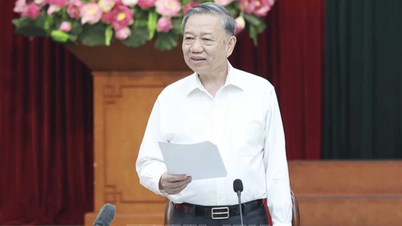


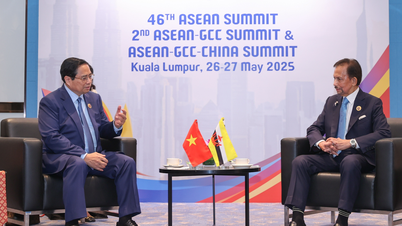










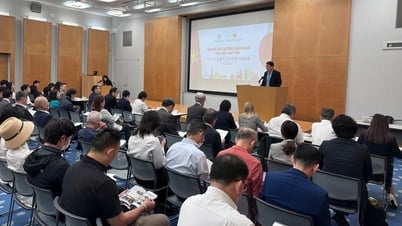








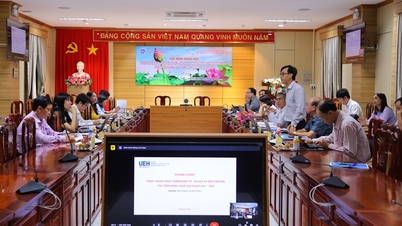












Comment (0)